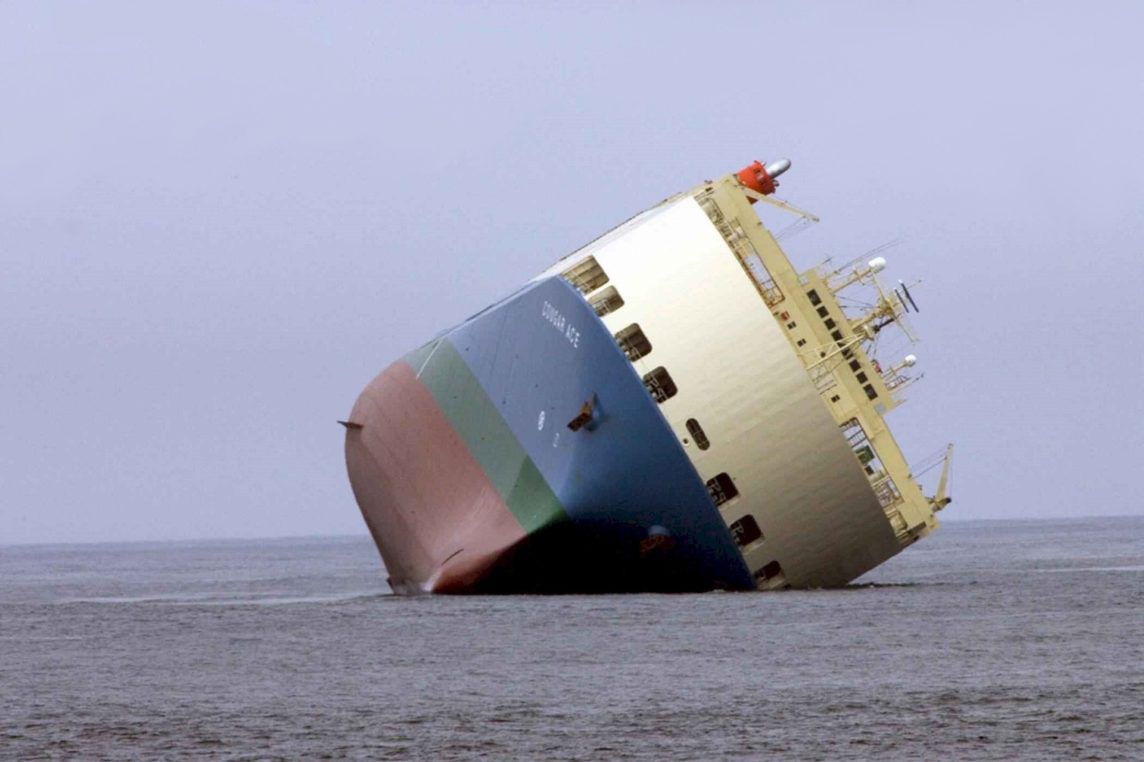A truck skids on a patch of ice. A container ship jettisons cargo during a storm. Dock workers in a far-distant port go on strike. Even in the most well-managed supply chain, events like these are sometimes unavoidable, but cargo insurance is what determines whether they are minor setbacks or major catastrophes. Unfortunately, misconceptions and poorly-understood terminology often leads shippers to believe they have adequate coverage, when in fact, their cargo coverage is at risk leaving the company vulnerable to litigation. The only truly safe strategy is for shippers to purchase their own All Risk policies, but impressing this on clients means demystifying this complex subject.
Shippers often assume that their cargo is insured through their carriers, but liability coverage is often extremely limited and is fundamentally designed to protect the carrier, rather than the shipper. While every mode of transport (truck, air, rail, and ship) has its own set of hazards to contend with, international shipping provides some of the most dramatic examples of what can go wrong without proper insurance. Cargo transported via ship is vulnerable to a myriad of possible problems, from rough handling by multiple sets of dock workers, to water damage aboard the vessel, to pirate attacks and other forms of theft. An ocean carrier’s insurance may make them liable for as little as $500 per unit leaving one to try and interpret what is a unit? Ocean cargo has massive gaps in coverage for acts of God (including lightning strikes and hurricanes), acts of war, strikes or riots, or cargo which was wrongly given a clean delivery receipt. What’s more, carrier insurance ends when your cargo leaves the ship and enters the next leg of its journey, which can leave it vulnerable if mishandled by local motor carriers. Another serious risk for which shippers are often uninsured is General Average, a maritime rule under which all shippers with cargo aboard a vessel are jointly liable for cargo damaged under certain circumstances. In cases where General Average applies, shippers need an insurance company that can swiftly post the bond for their portion of the cargo. Without such insurance, shippers can be left with their cargo impounded overseas and without the liquidity to pay for the bond. Horror stories abound of shippers who had never heard of General Average until finding themselves scrambling to pay for someone else’s damaged cargo.
Motor carriers suffer from similar shortfalls in coverage, which shippers are often unaware of before it’s too late. Most domestic motor carriers have “motor truck cargo” (MTC) insurance, but the terms of these policies can vary hugely from one to the next. The vast majority of MTC plans are only liable for $0.50 to $0.60 per pound of goods, and all have deductibles ranging from $5,000-$25,000. Many carriers offer “declared value coverage,” in which they accept liability for the declared value of cargo, but it is vital for shippers to understand that declared value is not insurance. For one thing, it does not protect against numerous common problems, including theft, and it excludes numerous types of cargo from coverage. What’s worse, successfully filing a declared value claim means proving that the carrier or freight broker is at fault, which can quickly sour an important business relationship. The battles over who is responsible for lost or damaged cargo can be bitter, costly, and take years to resolve, whereas actual cargo insurance claims can be resolved without assigning blame, and with freight forwarders working on behalf of shippers to see that they are compensated for their loss.
For truly comprehensive coverage, logistics professionals recommend All Risk insurance, as it offers the broadest protection against breakage, theft, General Average, non-delivery, and a host of other gaps left by other forms of coverage. All Risk insurance can cover cargo from door-to-door (or port to port, as is necessary), cover cargo being stored while in transit, and cover cargo through multiple modes of transit, until it reaches its final destination. Purchasing All Risk insurance through a 3PL firm as part of a suite of services offers distinct advantages, including the ability to tailor policies to an individual shipper’s needs and the ability to collaborate on filing claims and handling paperwork that can otherwise be time-consuming and overwhelming. Additionally, All Risk covers not only the value of the goods themselves, but other financial exposure such as the cost of freight, packing, and preparation, plus 10 percent for unforeseen costs that may be incurred if a claim is filed. When cargo insurance is in a client’s own name, purchased through a reputable insurer with transparent policies, insurance can finally offer the peace of mind that it’s meant to provide, and protect against catastrophes that could otherwise damage the business.
Aside from purchasing comprehensive insurance, shippers must ensure they have the correct receiving protocols in place to avoid liability for concealed or damaged goods. This means giving each delivery a thorough inspection to make sure each piece is complete and undamaged, and clearly noting any abnormalities before sending the driver off with a signed receipt. In the case of hidden damage, shippers must contact the carrier within five days of receipt to request an inspection of freight, and keep a detailed report in order to file a claim.
Cargo insurance can be purchased for very little additional cost, especially when compared to the value of the cargo being transported. It is important to consider if your cargo is adequately protected from loss and decide if adding cargo insurance to your freight budget makes sense to protect your business.
Red Arrow can help you protect your valuable cargo with additional cargo and All Risk insurance. Click here for more information on cargo insurance or give us a call!



